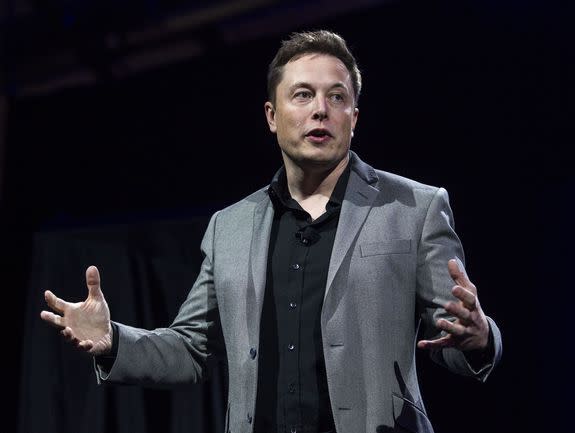SpaceX's bold plan to deliver worldwide internet with 4,425 satellites

SpaceX has big plans for bringing internet to locations around the world, and it all starts in space.
The Elon Musk-founded company just filed an application with the Federal Communications Commission that lays out its vision for using thousands of satellites in orbit to beam internet down to the world.
"The system is designed to provide a wide range of broadband and communications services for residential, commercial, institutional, governmental and professional users worldwide," SpaceX wrote in a supplement to the filing.
SEE ALSO: Elon Musk says we're going to Mars, and we're bringing tunneling droids
In total, the constellation would be composed of 4,425 satellites in varying orbits, and would cost about $10 billion, according to estimates made by Musk in 2015.
The constellation would begin with 800 satellites initially, the filing states, though it is unclear when they will launch.
"Once fully deployed, the SpaceX System will pass over virtually all parts of the Earth’s surface and therefore, in principle, have the ability to provide ubiquitous global service," SpaceX said in the filing.
This isn't the first time SpaceX has made its internet plan clear.

Image: AP Photo/Ringo H.W. Chiu
Musk has spoken about the satellite system multiple times, even saying that he would want to use it to help fund a city on Mars, according to the Seattle Times.
SpaceX also isn't alone in its ambitions for space-delivered internet. The company OneWeb hopes to launch a constellation of 648 satellites to deliver internet globally.
Boeing also hopes to create a satellite internet system at some point.
Facebook aspires to the same goal, but the social network experienced a setback due to a SpaceX rocket explosion. The mishap destroyed a satellite Facebook was going to use to deliver internet to parts of sub-Saharan Africa.
Since that explosion in September, SpaceX launches have been on hold. Engineers working with the company are still hunting for the exact root cause of the rocket failure, but the company is getting closer to figuring it out.
SpaceX estimates that they should be flying to space again before the end of the year.

 Yahoo News
Yahoo News 